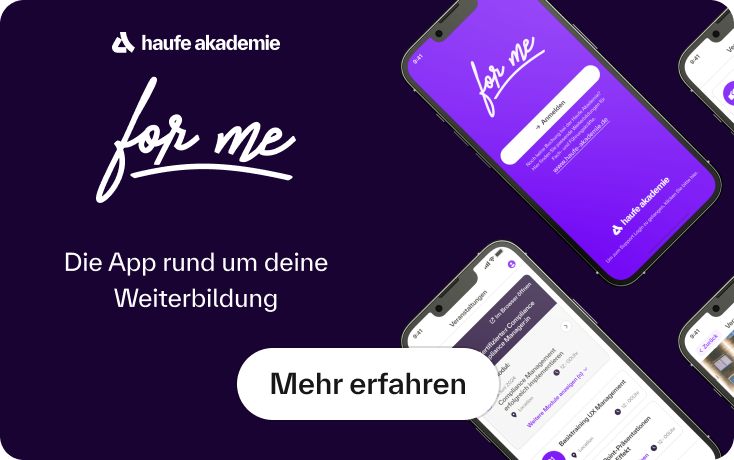Lie to me! Conduct diversity-friendly job interviews
Minimize unconscious biases and strengthen your own resilience, self-reflection and attitude

Contents
Applicant reality - employer reality
- Employee market.
- Fit or push.
- Balancing boundaries.
Difficult interview situations
- What causes trouble?
- What's annoying?
- Triggers for stress triggers.
Unconscious bias
- Function of perception and evaluation.
- A blessing and a curse in communication.
- Two worlds collide; applicants and interviewers.
Identify conscious and unconscious perception processes
- Impulses meet internal perception processes.
- Conscious and unconscious levels of perception.
- Perceive, evaluate, assess.
Managing diversity
- Generation X, Y, Z and gender-specific traps.
- Typical needs, wishes and demands of these target groups.
- Unconscious feelings and reactions to other values.
Recognize your own patterns of perception
- Which values shape your own subjective assessment?
- What typical assessment patterns can be derived from this?
- Identify individual blind spots of perception.
Digital applicant situation
- Overcoming distance.
- New evaluation dimensions.
- Use of various tools.
Typical errors of judgment
- First impressions only count for half.
- Recognize and classify bias effects in recruiting.
- Basic attitude of trust and mistrust.
Self-reflection
- What is typical for me? Recognize patterns.
- What can I rely on? Strengths profile.
- What should I develop further? Optimization profile.
Lie to me: sensitization to human nuances
- Between the words is the "actual".
- Understanding body language as an expression.
- Building bridges - contact management.
Resilience for recruiters
- Resilience dimensions.
- Individual stress management.
- Strategies for sovereignty.
Learning environment
In your online learning environment, you will find useful information, downloads and extra services for this training course once you have registered.
Your benefit
- Get a thematic overview of applicant interviews in the New Work context.
- Identifying stress triggers as a recruiter and developing strategies for dealing with them positively.
- Recognition of own patterns of perception and reflection as well as the deduction of possible errors of judgment.
- Receive concrete suggestions for establishing the topic of "unconscious bias" in the perception of applicants .
- Know what to look for in the assessment ("lie to me").
- Be able to reflect on yourself and build up your own resilience.
- Further development of the objective view of oneself and of applicants in order to meet the high demands of modern recruiting with confidence.
Methods
Input from the trainer, case studies, best practice examples, exercises, discussion, exchange of experiences, work aids, checklists, role plays
Recommended for
Specialists and managers with recruiting tasks.
Further recommendations for "Lie to me! Conduct diversity-friendly job interviews"
Start dates and details
Tuesday, 08.09.2026
09:30 am - 5:00 pm
Wednesday, 09.09.2026
08:30 am - 4:30 pm
- one joint lunch per full seminar day,
- Catering during breaks and
- extensive working documents.
- one joint lunch per full seminar day,
- Catering during breaks and
- extensive working documents.
- one joint lunch per full seminar day,
- Catering during breaks and
- extensive working documents.
training: Lie to me! Conduct diversity-friendly job interviews
When people who don't know each other meet for the first time, many unconscious processes take place in our brains that determine whether we like or dislike them. What is completely normal for us in everyday life is out of place in recruiting and, in the worst case, can prevent the "right candidate" from being hired for the right position. If you don't want to rely solely on your gut feeling when deciding for or against an applicant and instead want to decide as objectively as possible in the interests of the company, this training learn how to conduct job interviews without prejudices and patterns of perception(unconscious bias). And learn a lot about your own subjective perception filters and how others perceive you.
Professional recruiting thanks to job training training
Job interviews are supposed to help "filter out" the best employees for a company from a large number of applicants . All too often, however, the search for the best personnel solution fails due to errors of judgment and incorrect assessments, personal sensitivities, subjective demands and simply interpersonal issues. If you want to benefit as much as possible from discussions with new applicants , you first need a great deal of self-reflection. Because only those who can assess their own behavior as neutrally as possible from an external perspective are in a position to conduct an objective job interview. attendees the seminar "Lie to me! Conduct diversity-friendly job interviews" learn how to deal objectively with non-verbal signals and build up adequate skills in dealing with application situations. They also learn what recruiters should definitely pay attention to.
 4.5
4.5







